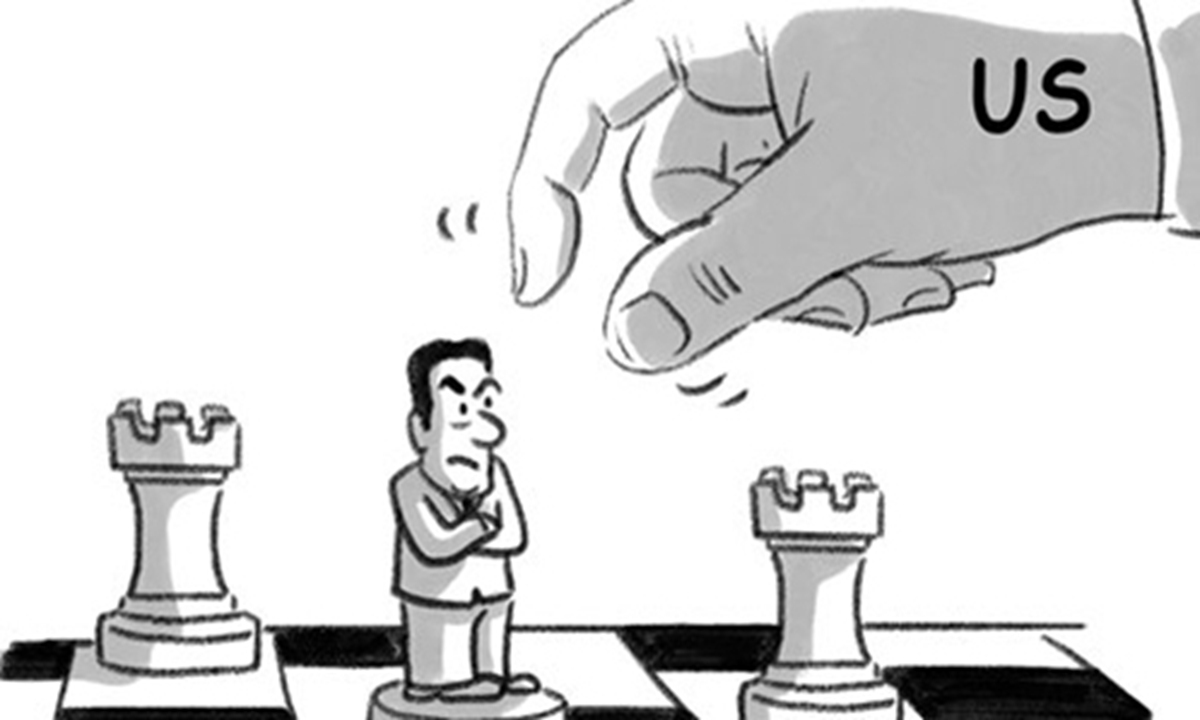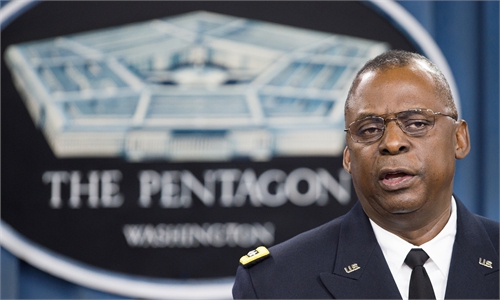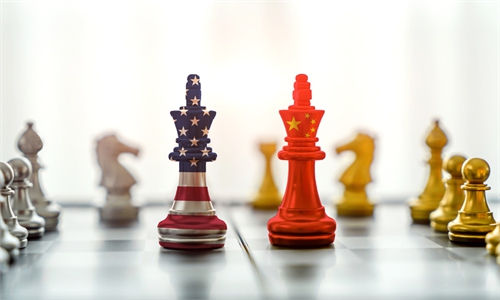
Illustration: Liu Rui/GT
US Vice President Kamala Harris will travel to Vietnam later this month to "strengthen relationships and expand economic cooperation" during a trip that will also include Singapore, according to her spokesman on Friday. Just last week, US Secretary of Defense Lloyd Austin arrived in Hanoi for talks that focused on security and military cooperation between the erstwhile enemies. The intense visits clearly display the US' increased attention paid to Vietnam. All can see America's ratcheted-up efforts to seek courtship with the ASEAN country.
Austin's visit was the first to Vietnam by a high-ranking US official since US President Joe Biden took office in January. COVID-19, security and strategic cooperation topped the agenda of Austin's Vietnam trip. Hanoi was concerned with Washington's assistance to Vietnam in containing the spread of COVID-19 during talks. This is understandable as Vietnam is battling a new surge in infections.
Another focus was security and military cooperation. However, it could be said there was no major breakthrough made during Austin's visit. The two countries only agreed to promote the Vietnam-US cooperation as per the 2011 Memorandum of Understanding on Defense Cooperation and the 2015 Joint Vision Statement on Defense Relations.
In terms of strategic cooperation, Austin expressed Washington's wish to upgrade ties with Hanoi to a strategic partnership in a meeting with Vietnamese President Nguyen Xuan Phuc on July 29. But Hanoi didn't make a clear response. This shows that Hanoi is reluctant to upgrade ties with Washington amid uncertainties in both domestic and external situations and in the context that no actual progress has been made in US-Vietnam bilateral relations.
Regarding Austin's visit, public opinion has paid much attention to whether or not Hanoi will be "fooled" by Washington. But the reality has shown that Vietnam's new leadership is sound in governance and adheres to the foreign policy of independence, multilateralism and diversification. Over the years, Hanoi has learned from its experience that political stability comes first and that maintaining stability and safeguarding development are delicately interlocked with each other.
It is very clear that Vietnam is rich in wisdom and big picture, and has long recognized that US' wooing is a part of the global strategic competition among major powers. Vietnam will not take US' side.
Struggling to achieve a balance between great powers is the most realistic option for Vietnam in the future. Seeing from the current reality, Vietnam is facing a severe pandemic situation. It needs a peaceful and developing environment to achieve the dual goals of promoting pandemic prevention and stabilizing the economy.
In fact, it needs China's support to tide over its economic difficulties. It is neither beneficial nor achievable for Hanoi to make trouble with Washington and the West with the South China Sea situation.
From Washington's perspective, Vietnam's role and position in US foreign strategy have been stable yet is declining. It is obvious that US-Vietnam relations have passed the warm period after the official establishment of diplomatic ties and the rapid development period under the Obama administration, and have "reached the top."
Although the Biden administration's Interim National Security Strategic Guidance, published in March, mentioned Vietnam and Singapore, indicating that the US will try to increase its cooperation with Vietnam for some time to come, the US-Vietnam relationship is not solid or stable.
In such a situation, if Hanoi firmly adheres to the "four-nos" policy, which means no military alliance, no affiliation with one country to counteract the other, no foreign military base in the Vietnamese territory to act against other countries, and no force or threatening to use force in international relations, as Hanoi Times put it, even if Washington and Hanoi declare to become a "strategic partnership" at some point, it will be difficult for Washington to exploit Vietnam more in Biden administration's Indo-Pacific strategy.
The author is an assistant research fellow of the Institute of South and Southeast Asian and Oceania Studies at the China Institutes of Contemporary International Relations. opinion@globaltimes.com.cn


